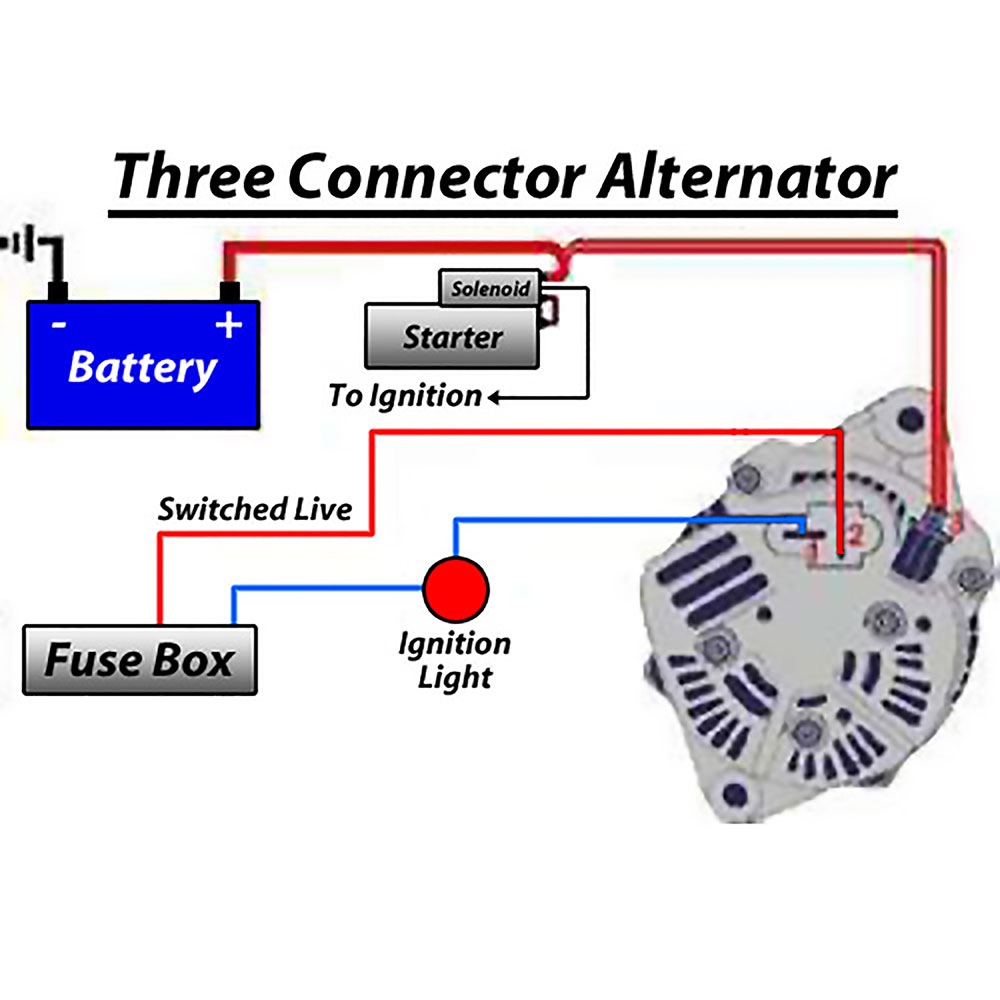Alternator Wiring Connections are crucial for the proper functioning of a vehicle’s electrical system. Without the correct connections, the alternator will not be able to effectively charge the battery and power the electrical components of the vehicle. Understanding how alternator wiring connections work is essential for any mechanic or car enthusiast.
Why Alternator Wiring Connections are Essential
Alternator Wiring Connections play a vital role in ensuring that the alternator is able to generate electricity and charge the battery. Without proper connections, the alternator will not be able to send power to the battery, resulting in a dead battery and electrical system failure. Here are a few reasons why alternator wiring connections are essential:
- Proper connections ensure that the alternator is able to charge the battery effectively.
- Correct wiring connections help prevent electrical system malfunctions and failures.
- Understanding wiring connections can help diagnose and troubleshoot electrical problems in the vehicle.
Reading and Interpreting Alternator Wiring Connections
When looking at alternator wiring connections, it is important to understand the different wires and their functions. Here are a few key points to keep in mind when reading and interpreting alternator wiring connections:
- Identify the positive and negative terminals on the alternator and the battery.
- Check for any loose or damaged wires that may be affecting the connection.
- Refer to the vehicle’s wiring diagram to ensure that the connections are correct.
Using Alternator Wiring Connections for Troubleshooting
Alternator wiring connections can be a valuable tool for troubleshooting electrical problems in a vehicle. By understanding how the connections work, you can easily identify and fix issues with the electrical system. Here are a few ways alternator wiring connections can be used for troubleshooting:
- Check the connections for any signs of corrosion or damage that may be affecting the electrical flow.
- Test the voltage output of the alternator to ensure it is charging the battery correctly.
- Use a multimeter to check for continuity and proper connection of the wires.
Importance of Safety
When working with alternator wiring connections or any other electrical system in a vehicle, safety should always be a top priority. Here are some safety tips and best practices to keep in mind:
- Always disconnect the battery before working on the electrical system to prevent the risk of electrical shock.
- Use insulated tools when working on electrical connections to avoid short circuits.
- Refer to the vehicle’s wiring diagram and follow proper procedures to ensure a safe working environment.
Alternator Wiring Connections
Common Delco SI Series Alternator Wiring Diagram | Smith Co Electric

24 Volt Alternator Wiring Diagram

Bosch 24v Alternator Wiring Diagram – Wiring Diagram

Alternator Wiring – Electrics – RHOCAR – The UK Kit Car Club

Delco Remy 28SI Alternator

[18+] How To Wire A Chevrolet Alternator, Vehicle Alternator Wiring Diagram
![Alternator Wiring Connections [18+] How To Wire A Chevrolet Alternator, Vehicle Alternator Wiring Diagram](https://i1.wp.com/i.pinimg.com/736x/88/5b/81/885b81e7558a8eb81806bc92ee85e97e.jpg)